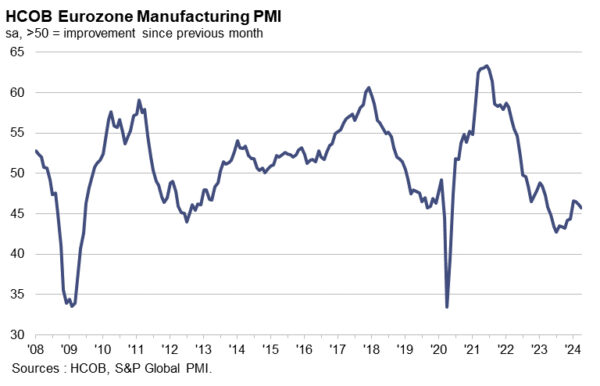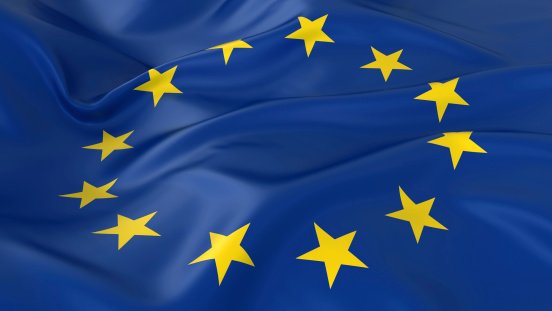Manufacturing in the euro area remains in recession as April's PMI figures highlight ongoing challenges and disparities in the region. The manufacturing PMI for the euro area as a whole ended up at 45.7, down slightly from 46.1 in March.
Greece ranked first among member countries with a PMI of 55.2, the lowest level for the country in three months. Spain and the Netherlands showed positive trends, with Spain at 52.2, the highest level in 22 months, and the Netherlands at 51.3, the highest level in 20 months. On the other hand, major countries such as Germany, France, and Italy continued to struggle. Germany's PMI improved slightly to 42.5, the highest level in two months, and France's PMI rose slightly from the preliminary report, but fell to 45.3, the lowest level in three months.
Silas de la Rubia, chief economist at the Hamburg Commercial Bank, said the manufacturing sector was in a prolonged recession, extending into April. He highlighted the significant drop in new orders, which he described as a “rapid decline with unparalleled speed and lack of international support over the past four months.” Della Rubia also pointed to worrying trends in the capital goods sector, which is usually a bellwether for broader industrial health, but which he said has been “particularly hard hit” this economic cycle. .
Spain stands out in the euro area, continuing to demonstrate economic resilience with sustained growth in manufacturing. This divergence is especially noticeable against the backdrop of other major eurozone countries, such as Germany, France and Italy, failing to gain similar momentum and experiencing weaker economic performance.

Click here for the final release of the complete Eurozone PMI Manufacturing.

